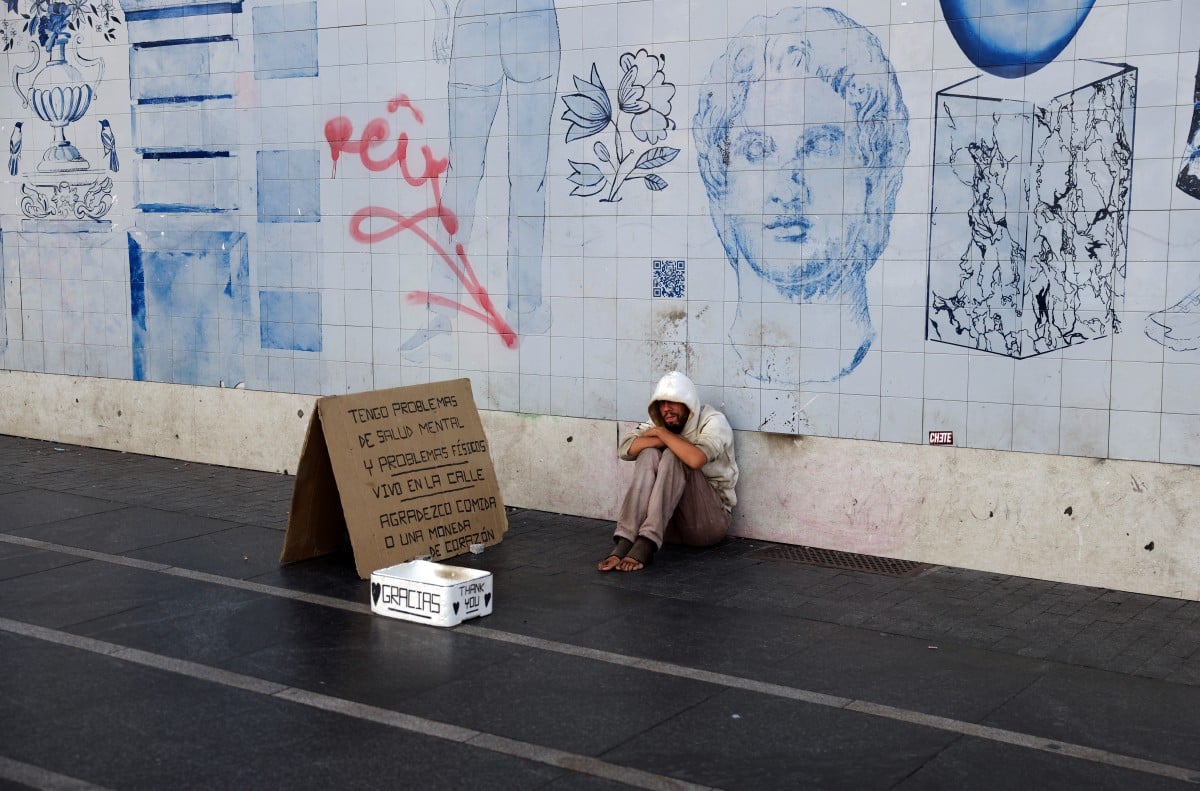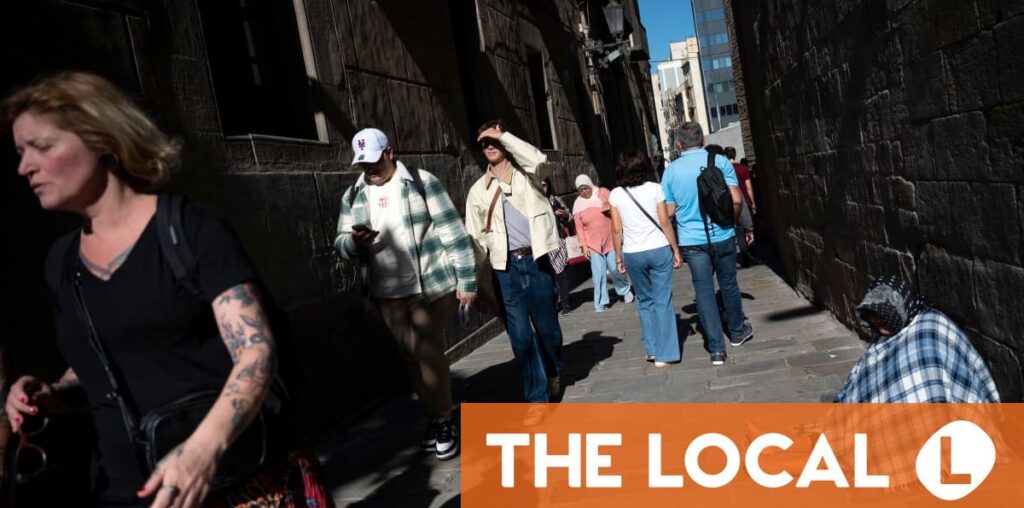Depending on where you come from in the world, you may or may not think that there are a lot of beggars in Spain.
If you’re from the UK or U.S, for example, the numbers of homeless people asking for money on Spanish streets probably pales in comparison to the major cities back home. If you come from Finland or Japan, however, you might be shocked by the numbers of people in the street in places like Madrid, Barcelona and Valencia.
According to the latest homelessness survey data from Spain’s National Statistics Institute (INE), as of the end of 2022 there were officially 28,552 homeless people in Spain, 7,277 of which were living in the street, 11,498 live in shelters and reception centres, and 9,778 in accommodation and boarding houses.
Of course, the true number is likely much higher than that.
‘Ending’ begging has been something of an obsession of many mayors across Spain. In recent years, local authorities in cities such as Barcelona, Alicante, Valladolid, Oviedo, Cartagena and Seville have all passed municipal ordinances restricting begging and making it a punishable offence.
However the letter of the law is, as is often the case with Spanish law, something of a grey area.
Advertisement
Spanish law on begging
There is no national level law making begging or asking for money in the street illegal in Spain.
However, there are a couple of specific clauses in the Spanish penal code that ban certain begging practices, such as using children, disabled or trafficked people for the purpose of begging.
Article 232 states:
Those who use or lend minors or disabled persons in need of special protection for the practice of begging, even if this is concealed, shall be punished with imprisonment from six months to one year.
If minors or disabled persons in need of special protection are trafficked for the purposes of the previous point, or if violence or intimidation is used against them, or if they are supplied with substances harmful to their health, they shall be sentenced to imprisonment for a term of one to four years.
Article 177 also outlines some rules about forcing trafficked people into begging, banning:
(a) The imposition of forced labour or services, slavery or practices similar to slavery, servitude or begging.

A homeless man sits on a street in downtown Madrid. (Photo by Thomas COEX / AFP)
Local crackdowns
So, there isn’t a specific national level law or outright ban on begging in Spain, and it’s only punishable by prison time in certain situations involving the exploitation of vulnerable people.
As such, the rules and punishments are generally left to regional and, in particular, local administrations.
Many mayors in towns and cities across Spain have tried to crack down on begging, with various fines and sanctions introduced over the years. Often, this is justified along public health or ‘coexistence’ grounds.
Advertisement
In Valladolid, for example, fines can reach up to €750. In Barcelona, the fine for using children to beg can be up to €3,000.
In Alicante, prostitutes, beggars and homeless people can be fined between €750 and €1,500 by local police as part of a wider new municipal ‘civil coexistence’ ordinance passed in 2022. Those fined can, depending on the circumstances, receive social work support and have some of the penalty waived if they agree to take courses or training programmes.
In Oviedo, in the northern region of Asturias, there are ordinances to regulate a wide range of street activity including begging but also graffiti, skateboarding, cycling, ‘botellón’ (the custom of drinking in the street), offering or seeking sexual services, as well as urinating or spitting in public.
The city allows street musicians and street artists but prohibits begging with a ‘light penalty regime’, which includes verbal warnings and the involvement of social services.
Advertisement
Cartagena in Murcia has an ordinance that expressly bans begging in the streets. The rules prohibit begging, selling tissues or other products without a licence and offering services, such as cleaning car windows, in exchange for money.
So, technically speaking, begging is not illegal at the national level in Spain, except in certain situations where vulnerable people are exploited. In these cases it is even punishable by prison time.
However, depending on where you are in Spain and the local rules, you could still be fined for begging on the street if you’re caught by police.

